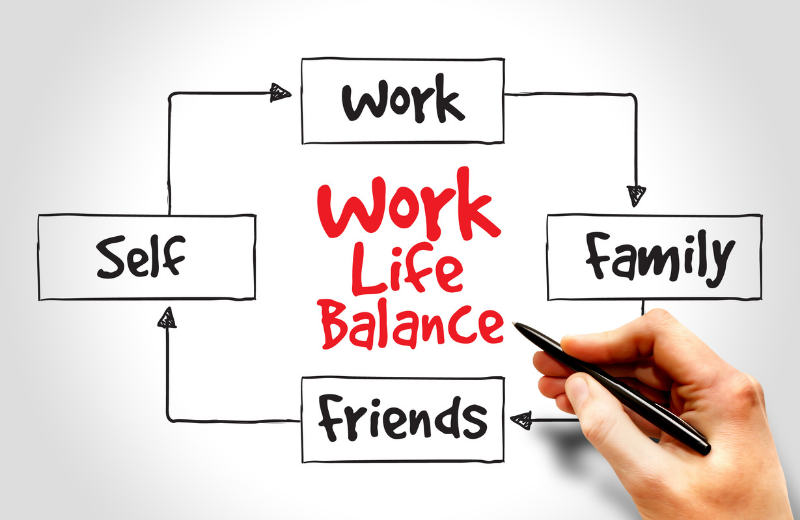
The Importance of a Good Work Life Balance
As this year has nearly come to an end, it’s evident looking back that mental health has been one of the big topics over the past 18 months. Your job is a huge part of your life and poor work-life balance can most definitely impact your mental health.
The Mental Health Foundation recently stated that the increasingly demanding work culture in the UK is “perhaps the biggest and most pressing challenge to the mental health of the general population”.

Creating a healthy balance between your career and personal life is a challenge, nonetheless critical to improve your physical, emotional and mental health, as well as your career health. Our desire to succeed professionally can leave us not looking after our own wellbeing and we don’t often realise until we’re in the midst of it.
We have over 70 jobs in fashion covering Design, Technical, Production, Head Office and Retail at the moment and 19% of our roles offer work from home opportunities which is 19% more than before Covid19!
A good work-life balance has numerous positive effects, including minimising stress and burnout, and promoting overall wellbeing. But how do you achieve a good work-life balance?
1. Prioritise your health
At the end of the day a job is only a job and your health is the most important thing you’ve got. Overworking yourself if you are feeling unwell, whether this is mentally or physically, prevents you from getting better and will possibly cause you to take more days off in the future.
Another way to prioritise your health can be as simple as making time for daily or weekly exercise.
2. Plan your time
Work-life balance means something different to everyone and there is no perfect balance. Some days you might focus more on work, while others you might have more time and energy to pursue your hobbies or spend time with your loved ones.
By planning your time when you’re at work, you stay focused and keep productivity up. When you work efficiently and constantly prioritise your workload it’s a lot easier to ‘clock out’ without feeling stressed.
Equally, you need to plan time with friends and family and not lie on the couch all weekend because “work is so busy”. Although alone time is important too, spending time with your loved ones can be a fantastic source of energy.
3. Don’t be afraid to unplug
The world of work is evolving and the line between business and personal is becoming increasingly blurred. Technology has created expectations of constant accessibility. But is it necessary to check your emails throughout the weekend? How often does something come up that is so urgent it can’t wait until Monday? We dare to assume; not very often.
Unless you’re a Director or another senior member of management that might be expected to be available during leave, it’s incredibly important that you prepare a handover and set your out of office when you go on holiday. The whole point of taking leave is to shut off, decompress and recharge your batteries; always being ‘on’ isn't good for you. And remember, holiday days are a legal requirement for a reason – use them!
4. Pursue a career you love
“Do what you love and you'll never work another day in your life” may be a cliché statement, but that doesn’t make it less true. It’s not healthy to get the Sunday blues every week, dreading going to work the next day.
Working might be a societal norm and a necessity to put food on the table and roof above your head, but it should also serve you emotionally and help you grow as a person. Although work isn’t always fun, it’s important that you feel motivated, challenged, and appreciated.
If you feel like your job is draining you and preventing you from doing what you enjoy outside of work, it might be time to start looking for something new. We can help.

